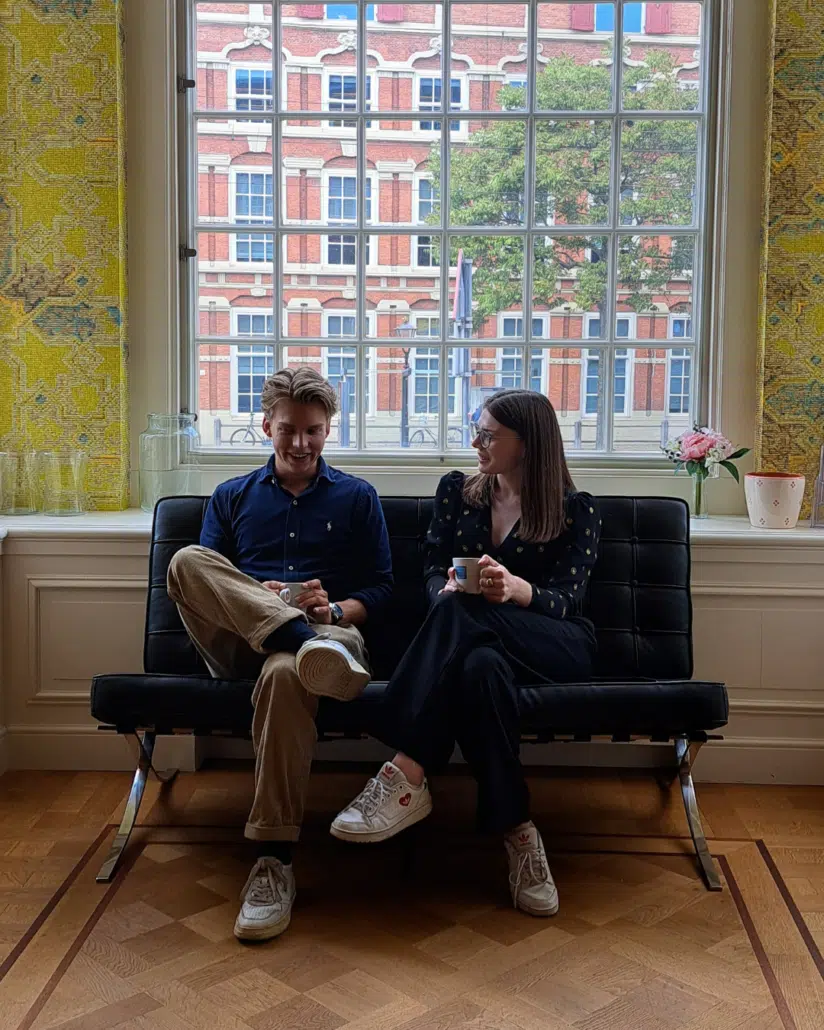HCSS Internship Blog and Interviews
Hi Laura, can you briefly introduce yourself and your background? For example, what is your previous education and have you done any work experience before?
My name is Laura, I am 23 years old. I just finished a bachelors in political science and human geography. I wrote my thesis on the Indo-Pacific which is also how I found HCSS. I’m doing my second internship at the moment – I did my first internship at the German parliament where I worked for a member of parliament for the Social Democrat party. For my second internship I decided to work on something more research based and that is why I decided to apply to HCSS to develop my research skills.
OK interesting, so what would you say your typical day looks like?
So, I get to the office, start my laptop, I get myself a tea and then I start by looking in my calendar if I have any important meetings that day. Then, I will start with my tasks that I’d been assigned to for that day, usually research based. We get assigned to different projects on a weekly basis and some projects I have been working on for four months now, other projects I’ve just been on-boarded for – so, it depends really on which project you’re on for the day. Around 12.00 we normally get lunch with the entire office. Then in the afternoon I think it’s pretty similar, I get back into my research and sometimes I have meetings.
So, you mentioned in your typical day you spend a lot of time doing research, is there any particular research you really enjoy doing or any projects you really like working on?
I do have one project in particular that I really enjoy working on. I have been working on it for four months now. It’s on the topic of Semiconductor supply chains and we are doing scenario research. What could happen in the Indo-Pacific region that could impact semi-conductor supply chains? And so, I’ve been working a lot on scenario building which is a type of research I haven’t done before, but I’m really enjoying that. For example, what would it mean if there was another Korean War or what would it mean for business or for geopolitics if there was a Taiwan invasion or let’s say a quarantine? Yes, that has been a lot of fun in my opinion. There’s another project that I’ve worked on it’s on AI use in military which I’ve really enjoyed doing as well – like applied military science.

Reflecting on your experiences so far, have there been any special learning experiences or opportunities that the programme has provided that you don’t think you’d get anywhere else?
I think what the programme has really provided is insight into a field that I was already interested in. So, it is really great to get further insights into the research on the topic [of the Indo-Pacific] and just broaden my knowledge. What I’m also really thankful for is the mentorship programme we have. There are two people who are working with the interns mostly and it’s been really helpful to have people there that you can talk to if anything goes wrong. Also, to have my mentor, Benedetta, to talk to at any point in time; when I feel unsure about work or even things that happen in my private life. I think especially as someone who just moved to the Netherlands and having a couple of issues navigating the country, it’s been really helpful to have someone there by your side.
OK so it sounds liked your mentorship experience has been quite supportive, how would you describe the team-working environment in projects you’ve worked on and how are interns are included in projects?
I think that we interns are really included – for example I’ve also been working on preparing a workshop. As the only intern on this project, I feel that I’ve been really included in working out how to go about the workshop and who to invite. I think you need to kind of prove yourself in the beginning but then you get the chance to actually work with different stakeholders and be able to hear feedback on the things you’ve been working on directly. I’ve really appreciated this.
So, for future interns who are thinking of applying or applying currently what advice do you have?
While applying I would say the two most important parts will be: First, the writing sample that you have to hand in. I think it should be an example of what you’re actually capable of doing to prove that you will be able to thrive in this research-based internship. Secondly, I think you should prep yourself well for the interview because I believe that I was able to prove in my interview that working in an office environment would be something I could fit in to. And then, once you do get accepted, I think you can have a lot of fun. We have borrels every Friday, we go for drinks sometimes with the interns, you can find new friendships, also stay in contact with the analysts because you never know if it’ll help for you in the future- especially if you want to stay in the field. It’s always good to build yourself a kind of network that might be beneficial for your own future.
Finally, how would you describe your internship experience in three words?
Rewarding, versatile and fun
This interview was conducted by HCSS PR and Communications Assistant, Alessandra Barrow





